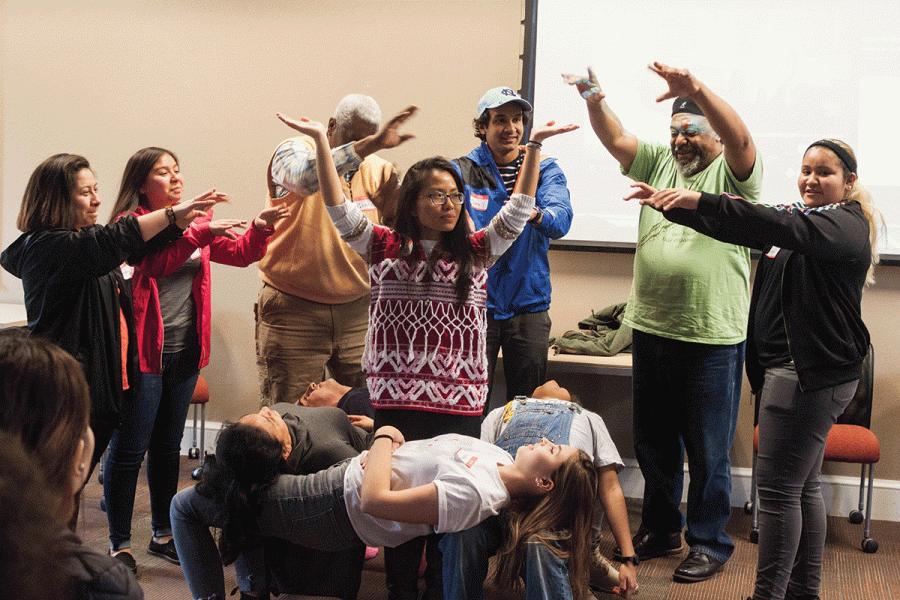Conference highlights issues of food justice
On Feb. 16 and 17, Guilford hosted the fourth annual FoodStorm Conference, which was intended to teach its 150 attendees about issues related to food justice in North Carolina. This year’s theme, “Uplifting Voices of Color,” focused on how food inequality affects people of color.
Guilford’s Food Justice Club organized the event, meeting twice a week since September to prepare for the event. The club aimed to make the event more focused than last year’s conference.
“Last year’s event was a little bit more scattered,” said sophomore and Food Justice Club president Mallory Cerkleski. “This year, we wanted to be super intentional about limiting the amount of workshops so that there would be more people within a space, (and) so that more people would hear the speaking and that that there would be only people of color speaking.”
Shorlette Ammons, community-based food systems outreach coordinator for the Center for Environmental Farming Systems, gave the conference’s opening address.
“(Food) could be a vehicle for change,” said Ammons. “It can be a vehicle to better understand each other.”
Event organizers hoped to draw attention to issues that are commonly overlooked. This idea was reflected in the eight different workshops that attendees could choose from, covering topics related to food justice such as sustainable living, youth movements and food culture.
Community activist Fahiym Hanna led a workshop entitled, “Bringing People Back to the Land,” which discussed the culture of growing food, land acquisition in the culture of globalization and using food to organize a community. During the presentation, Hanna emphasized the need to advocate for farmers.
“Stand up for your growers. They are in serious need, especially black farmers,” said Hanna. “People are getting pushed out of the land that they have already owned and have been working for years.
“If you feel passionate about food, please stand up for your growers because they are growing for you.”
Returning to the land was a theme that was also addressed by other speakers.
Chantel Johnson, founder of the project “Off Grid In Color,” led a workshop entitled, “What if My Ancestors Had Received 40 Acres and a Mule?” Johnson discussed how she started homesteading and living a self-sufficient lifestyle.
“I’ve learned to just live a very simple life because I’ve moved so much,” said Johnson. “Now my whole focus is around simple living.”
Another topic that Johnson highlighted in her workshop was that the U.S. has taken land from black people over the past 100 years.
“In 1900, (the black community) owned approximately 15 million acres of land. Now it’s around about 1 million acres of land,” said Johnson. “You see the big difference in that. It’s 100 years.”
While Johnson focused on a national issue, speakers such as agriculturalist and environmentalist Rhyne Chureton discussed local issues.
Chureton led a workshop examining the social, economic and environmental impacts of hog farming in North Carolina.
“(North Carolina is) the second largest pork-producing state in this country,” said Chureton. “We do have an effect on the environment since our methane currently is not effectively being captured by all pig farms.”
Conference organizers are optimistic that the conference raised awareness for issues of food justice and left attendees feeling motivated.
“I hope that people get out of the event that really everything has to do with food,” said Cerkleski. “When we talk about innovation, food is such a big part of that as well.”
Sophomore and club treasurer Ana Huckins expressed similar sentiments.
“I’m really hoping that folks are learning,” said Huckins. “It’s like not just about these talks, it’s about the work we’re doing after these talks.
“I want people to learn from these talks and get inspired to do food justice work.”









